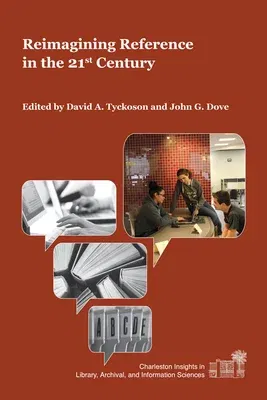Reference service, the idea that librarians provide direct assistance to
users, has been a central function of libraries for over a century.
Today's libraries are even more complex and intimidating to new users
than libraries of the past, and the technical and social contexts in
which users experience their library's resources add to this complexity.
The availability of a friendly librarian who helps users find materials,
search for information on a topic, interpret citations, identify quality
information, and format bibliographies has become a standard component
of what libraries do. However, changes in technologies, economics, and
user populations are causing many libraries to question the need and
function of traditional reference services. This book examines how
library services meet user needs in the twenty-first century. Many
libraries are asking key questions about reference services, such as:
Should librarians be on call waiting for users or out in the community
promoting the library? Should we assign staff to help users one-on-one
or is it more effective to assign them to build and use tools to teach
users how to find and evaluate information? Will we continue to purchase
commercial reference sources or just use Wikipedia and other free
resources on the web? With the proliferation of information available
today, how can we help users evaluate search results and select the best
resources that they can find? And how do we evaluate the effectiveness
of reference services? Through contributions from the leading scholars
and practitioners in the field, this volume addresses such issues and
how they affect practices in public and academic libraries. In addition,
it presents perspectives from the publishing community and the creators
of discovery tools. Each section is enhanced by short case studies that
highlight real-world practices and experiences.


